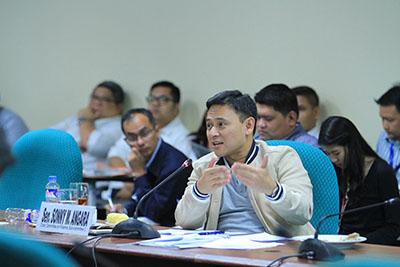
Reelectionist Senator Sonny Angara said the government should invest more in water infrastructure and implement practical local government measures like rainwater collection to help the country cope with drought and consequent water shortages during dry season and El Niño events.
“Since droughts and water scarcity have become a more common occurrence, it is necessary that we come up with measures to improve the country’s water management system to prevent a full-blown water crisis in the future,” Angara said.
Angara issued the statement as authorities warned of possible water shortages in the coming months due to the El Niño phenomenon.
According to the lawmaker, the government needs to build more water catchment basins and other infrastructure requirements to meet the country’s water demands.
He also called for full implementation of a 30-year-old law, Republic Act 6716, which mandated the construction of rainwater collectors in every barangay nationwide.
“RA 6716, which was approved in March 1989, mandates the collection of rainwater in barangays to ensure provision of fresh water,” Angara pointed out. “This covers the entire process, from catchment to treatment and distribution.”
Angara noted that community-based rainwater harvesting systems had been proven quite effective in several countries like India, Malaysia, Thailand and Singapore. “Why shouldn’t we implement the same, especially since we get an abundance of rain during the rainy season?” he asked.
As early as 2007, the Asian Development Bank had already warned that the country’s clean water supply could be depleted by 2025 if the government failed to act and invest in water management and infrastructure.
Metro Manila is one of nine metropolitan areas identified as “water critical.” The others are Metro Cebu, Davao, Baguio, Angeles, Bacolod, Iloilo, Cagayan de Oro and Zamboanga.
Because of the situation, the country’s ageing and inadequate water infrastructure needs immediate review and rehabilitation, the reelectionist senator said.
“This recurring water problem needs urgent attention. Every minute of inaction prolongs and compounds the problem of overexploitation and unsustainable use of water, a vital but increasingly limited resource,” Angara added.
